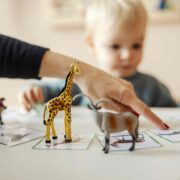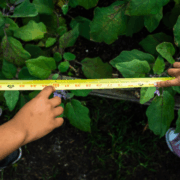Early years activity: Mini movers obstacle challenge
Here’s a simple, adaptable, mini movers obstacle challenge activity using your everyday nursery equipment. Children balance, crawl, jump and climb their way around the route, building strength, coordination, practice listening, turn-taking and positional language (under, over, on etc). Quick to set up, easy to adapt and a brilliant way to get your children moving.
Read more










